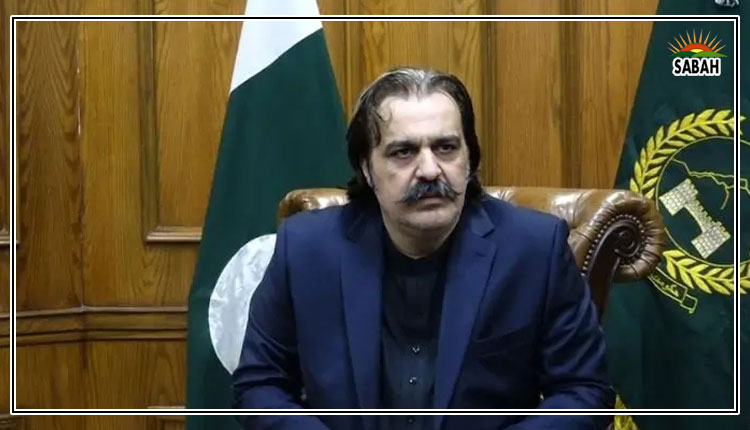Muhammad Faheem highlights India’s heinous crimes in Occupied Kashmir, including extrajudicial killings, collective punishment & targeting innocent civilians
NEW YORK, Sep 28 (SABAH): In response to the baseless and misleading assertions made by the Indian delegate at the United Nations, Muhammad Faheem, a Third Secretary at the Pakistan Mission, delivered a firm, powerful and factual rebuttal, shedding light on India’s ongoing violations in Indian Occupied Jammu and Kashmir.
Faheem emphasized that India continues to distort the facts surrounding the Jammu and Kashmir dispute, with a view to deflect attention from its illegal actions and repressive measures in IIOJK. He reaffirmed that Jammu and Kashmir remains an internationally recognized disputed territory, as outlined by numerous United Nations Security Council resolutions, which call for a free and impartial plebiscite to allow the Kashmiri people to exercise their right to self-determination.
“India is obligated under Article 25 of the UN Charter to implement these resolutions, yet it continues to evade its responsibilities,” Faheem stated.
Referring to India’s illegal and unilateral actions of August 5, 2019, the Pakistani delegate pointed out that these steps have only further intensified the occupation, with nearly one million soldiers deployed to suppress the legitimate aspirations of the Kashmiri people.
“India’s brutal occupation cannot silence the truth, nor can it deny the reality through its tactics of denial, distortion, and deflection,” he said.
Muhammad Faheem also highlighted India’s heinous crimes in Indian Illegally Occupied Jammu and Kashmir (IIOJK), including extrajudicial killings, collective punishment, and the targeting of innocent civilians. He noted that the reports from the UN High Commissioner for Human Rights and over a dozen UN Special Rapporteurs have documented these violations, and yet India continues to deny access to independent observers.
In his remarks, the Pakistani delegate strongly countered India’s baseless accusations of terrorism, highlighting that India has long been involved in sponsoring terrorism against Pakistan and other nations. He cited the involvement of India’s intelligence agency in orchestrating terrorist activities, including the case of Kulbhushan Jadhav, a serving Indian naval officer convicted of terrorism in Pakistan.
“India’s terrorist franchise has now gone global, with recent assassinations and attempted murders of political dissidents on North American soil,” he added.
Addressing India’s reference to the events of 1971, Faheem clarified that it was an act of foreign aggression against Pakistan’s sovereignty and territorial integrity. He urged India to refer to the General Assembly resolution of December 1971, which upheld Pakistan’s sovereignty.
Furthermore, Muhammad Faheem underscored the worsening human rights situation within India itself, particularly under the BJP-RSS government, which has ruled since 2014. He condemned the state-sponsored violence and Islamophobia targeting India’s Muslim population, as well as other minorities, including Christians and Dalits.
“India’s reign of terror against its minorities, including lynchings, forced conversions, and the destruction of mosques, continues unabated,” he stated.
Muhammad Faheem called on India to end its state-sponsored terrorism, cease its illegal occupation of Jammu and Kashmir, and fulfill its obligations under international law.
“Pakistan will continue to highlight India’s state terrorism against the people of Indian Illegally Occupied Jammu and Kashmir, and we remain committed to supporting their inalienable right to self-determination,” he affirmed.











